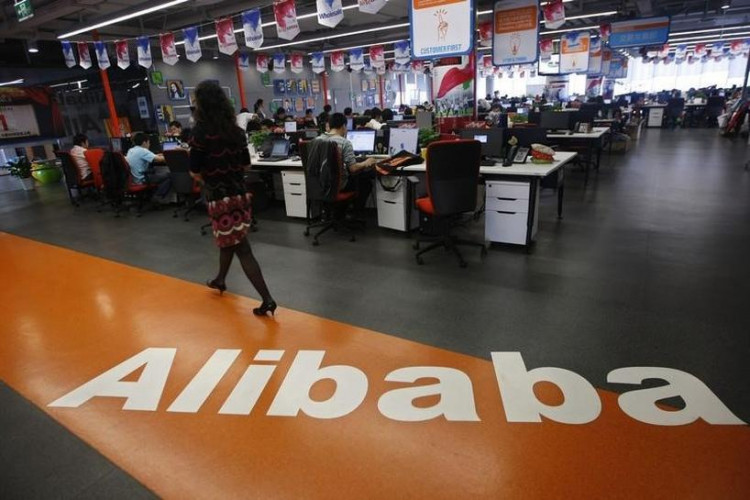Alibaba Group Holding Ltd. (NYSE: BABA) reported a notable increase in net income for its fiscal second-quarter ending September 30, beating Wall Street's profit expectations despite facing challenges in consumer spending amid a weakening Chinese economy. However, revenue growth fell slightly short of estimates, reflecting economic uncertainties and a fragile retail environment.
The Chinese e-commerce giant, co-founded by Jack Ma, posted net income of 43.9 billion yuan ($6.07 billion), marking a year-over-year increase of 58%. This significant jump was primarily attributed to positive performance in its equity investments, reduced impairment of its assets, and higher income from operations, according to the company's earnings statement. Analysts had projected a lower net income forecast of 25.83 billion yuan, according to data from LSEG. On the revenue front, Alibaba reported a 5% increase year-over-year to 236.5 billion yuan, though it missed market expectations of 238.9 billion yuan.
Shares of Alibaba rose 3% in premarket trading following the announcement, with its New York-listed stock up nearly 17% year-to-date. The market reaction underscored cautious optimism from investors who have been closely monitoring Alibaba's key business segments amid China's economic slowdown.
Core Segments Show Mixed Performance
Alibaba's flagship e-commerce platforms, Taobao and Tmall Group, saw a modest 1% revenue increase to 98.99 billion yuan for the quarter. The modest growth reflects tepid consumer demand in China, exacerbated by ongoing economic challenges. Analysts and investors remain watchful of Beijing's stimulus measures aimed at reviving growth, including a recent 1.4-trillion-yuan package to stimulate economic activity and combat a prolonged real estate slump.
Despite the mixed environment, Alibaba highlighted a strong performance during China's annual Singles' Day shopping event. The company reported "robust growth" in gross merchandise volume, with a record number of active buyers contributing to sales momentum.
Meanwhile, the company's international e-commerce ventures showed greater resilience. Revenue for Alibaba's international commerce unit, which includes platforms such as Lazada and AliExpress, grew 29% year-over-year to 31.67 billion yuan. This increase was driven by cross-border business expansion, particularly in markets such as Southeast Asia and Europe.
Cloud and AI Business Gains Traction
Alibaba's Cloud Intelligence Group also delivered solid results, reporting a 7% year-over-year revenue increase to 27.65 billion yuan. This represents a slight acceleration from previous quarters, reflecting Alibaba's continued investment in cloud infrastructure and AI capabilities. CEO Eddie Wu emphasized that the cloud unit remains a key growth driver, with revenues from public cloud and AI-related products achieving double-digit and triple-digit growth rates, respectively.
"Growth in our Cloud business accelerated from prior quarters... We are more confident in our core businesses than ever and will continue to invest in supporting long-term growth," Wu said in a statement. Alibaba has been repositioning its cloud business as a major player in the AI space, competing with global and domestic tech giants such as Microsoft, OpenAI, Baidu, and Huawei.
In September, the company introduced its AI-powered search tool for small businesses in Europe and the Americas, as well as securing a five-year partnership to provide cloud services to Indonesian tech company GoTo. Alibaba's focus on AI and cloud technology underscores its commitment to diversifying its revenue streams amid regulatory scrutiny and market challenges in China.




